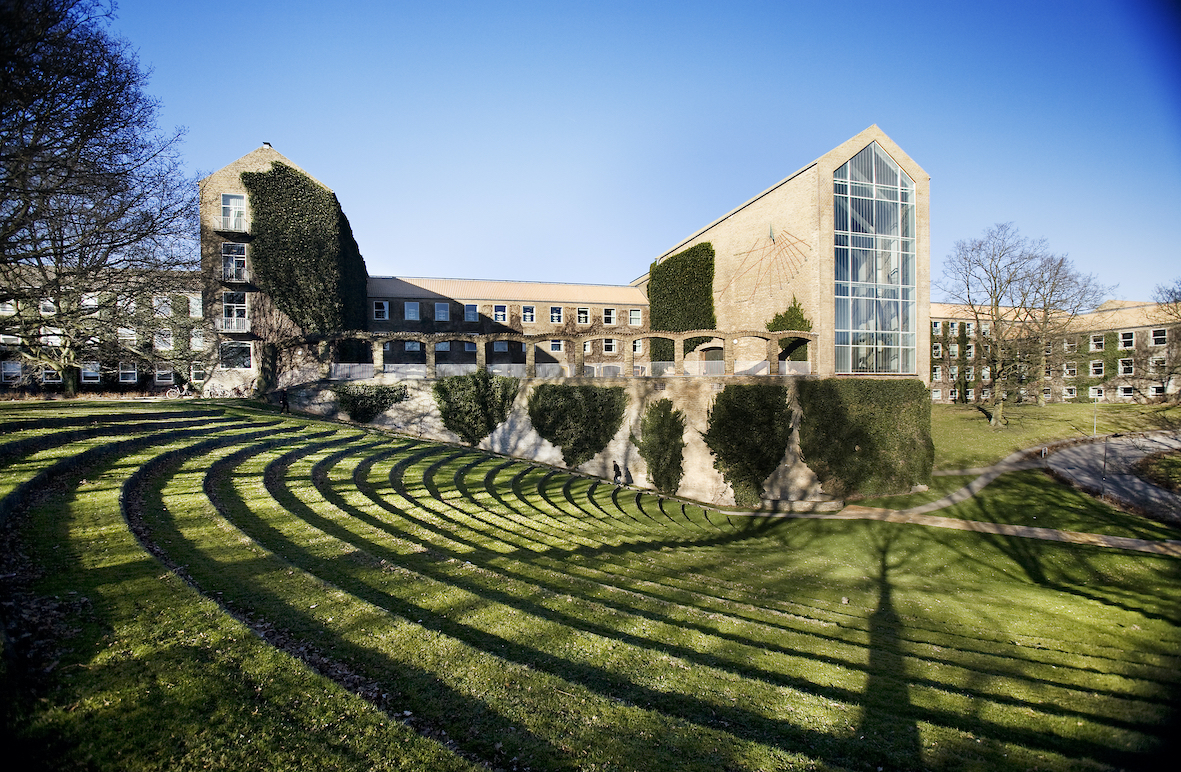Molecular medicine across borders
The 11th annual Nordic EMBL Partnership meeting focused on multidisciplinarity, access to cutting-edge technologies, and future research directions

Between 31 January and 2 February 2022, the Nordic EMBL Partnership for Molecular Medicine came together for its 11th annual meeting. DANDRITE, the Danish node of the partnership, located at Aarhus University, hosted the meeting in a virtual format.
In his opening remarks, the partnership’s speaker and FIMM Director Mark Daly highlighted the partnership’s achievements in connecting the Nordic nodes with each other and with EMBL. He stressed the value of joint training activities, research visits and infrastructure exchanges facilitated by the partnership itself as well as through NordForsk, which supports the partnership as a Research Infrastructure Hub.
“The Partnership meeting was truly energising despite the continued remote format required by the pandemic,” reflected Prof. Daly. “Hearing EMBL Director General Edith Heard present EMBL’s new programme ‘Molecules to Ecosystems’ juxtaposed with cutting-edge science presented by young researchers at all four Nordic nodes left us all with renewed enthusiasm to move forward together.”
Exchanging knowledge and building collaborations
The meeting included a day of research presentations and updates from each partnership node, as well as discussions about expanding opportunities for new collaborations, knowledge exchange, and access to cutting-edge technologies. Several speakers highlighted the importance of multidisciplinary collaboration and diversity across the nodes, access to services and new technologies, tool development, as well as theoretical models and data sciences in the partnership.
The Nordic nodes were also highlighted as networking hubs in their own countries, bridging scientists through programmes such as DANDRITE’s Affiliated Researchers, NCMM’s Associate Investigators, and MIMS’ Clinical Research Fellows, as well as national collaborative projects such as the Data Driven Life Sciences in Sweden and iCAN Digital Precision Cancer Medicine Flagship Program in Finland.
“I am very happy to see how successful the Nordic Partnership has been and look forward to even more synergies and to working closely with all of the institutes in the context of EMBL’s new Programme,” said Prof. Heard.
Keynote speakers from EMBL and all four Nordic nodes presented their latest work in the areas of functional proteomics, immune sensing in infection, stem cell replacement therapy for Parkinson’s Disease, new approaches to leukemia therapies, drug metabolism in multiple myeloma, and developments in imaging technologies.
One of the highlights was the presentation by Virginijus Šikšnys from Vilnius University in Lithuania. Lithuania became an EMBL member state in 2019, and relations were intensified a year later through a partnership with the Vilnius University Life Sciences Centre. Participation in the meeting introduced this new partnership to the existing Nordic network with a view to establish additional cross-partnership and cross-regional collaborations. The institute’s long-standing expertise in genome editing can be an important contribution to the research conducted in the Nordic network.
Supporting the next generation of scientific leaders
The partnership also welcomed three new group/team leaders at the Nordic nodes, who presented their research plans in the areas of molecular mechanisms of neuroplasticity, bidirectional communication in the gut-brain axis, and proteomics approaches to protein function in gut microbiome species.
Each year the meeting provides an outstanding forum for scientific exchange, especially for junior group leaders recruited to partnership nodes. In addition, supporting the career and skill development of early-career scientists within the network was an important focus of this year’s meeting. It included a dedicated Young Investigators’ Meeting (YIM), featuring workshops on science communication and building self-confidence, as well as a panel discussion on career opportunities.
“We chose the YIM programme for researchers to learn some new tools, connect with each other, and have fun at the same time,” explained Meike Sieburg, postdoctoral researcher at DANDRITE and YIM organiser. “It was a great experience to collaborate with colleagues from other nodes to bring this idea to life.”
Summing up the meeting, DANDRITE Director Poul Nissen said: “It really was a great meeting this year. Over the last two years, people have spent a little more time on studying new, advanced approaches and how they can be integrated into their research programmes and projects. We saw numerous examples of emerging technologies, such as AI-based data analysis, gene editing in model organisms and cells, and the integration of genetics, proteomics, and imaging to unveil complex pathways and networks. It was an inspiration to step up the exchange of know-how and facilities in the partnership.”
A next meeting will take place in Heidelberg between 21 and 24 September 2022, where EMBL will welcome the Nordic EMBL Partnership as part of the wider EMBL Partnerships network meeting. The conference brings together EMBL and its partner institutes to enable exchange of expertise and build new collaborations and research networks.